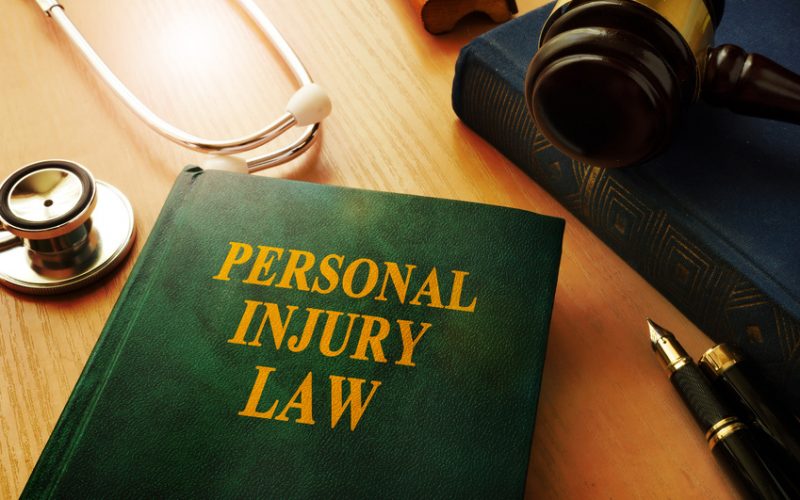Despite popular opinion, the life of a lawyer is not as static as you would believe it to be. These legal professionals have much more to do than just representing a client in court. That sentiment is increased when you look at the obligations of different kinds of lawyers. Take, for instance, the role of the personal injury lawyer.
The extent to which a personal injury may affect a client’s life can be as minuscule or as broad as you’d think. The personal injury lawyer must analyze all possible scenarios while advising their client. Some obligations are simple enough, while others can be much more challenging.
Here are the most common responsibilities of a personal injury lawyer:
#1. Evaluating the Situation
As mentioned previously, all scenarios pertaining to a personal injury lawyer’s work can vary. Sometimes, these sets of circumstances are pretty clear in favor of their client. At other times, there has to be a lot more investigation to figure out a resolution. A preliminary assessment will, therefore, be crucial.
These evaluations are generally conducted at the beginning of a case to determine who is at fault. Once that is done, the lawyer will build a case so that their client may be protected. Evidence will be gathered, and statements will be taken and assessed. Down the line, these evaluations will prove to be very valuable.
#2. Explaining the Processes
There are multiple processes, at this point, that you as the client should be aware of. All of the information and materials gathered here will be vital to understand. This is because they will increasingly become useful once the major proceedings are underway. Depending on where you live, this will range.
Different locations have different laws about personal injury cases. As a result, you will want your lawyer to explain these laws to you in meticulous detail to be on the safe side. The advice and tips you get here will go a long way in the coming weeks and months. If you don’t understand something, be sure to clear it up when possible.
#3. Best Practices
While the initial parts of the investigation will be underway, the personal injury lawyer still has to advise their client. Situations involving harm to a client can get murky, especially if the client doesn’t know how to proceed. An adequate lawyer will instruct their client about all the ethics revolving around the case.
If a drastic outcome occurs, the client will then be protected. It is incumbent on the lawyer to educate their client accordingly not to jeopardize their case. One false move or mistake can lead to their case falling apart at the seams. This information may not be able to come from anywhere else!
#4. Negotiations
Don’t just think that a lawyer will be interacting with the other party who is possibly at fault in the case. There are other aspects of the case that will also involve speaking to relevant parties. For example, your personal injury lawyer will inevitably reach out to your insurance company.
If your claim does not go through for whatever reason, your lawyer will be able to negotiate with them. Sometimes, the extent of your injury may be severe enough to warrant a second look at the claim. With enough work and luck, your lawyer should be able to come through for you!
#5. Presenting Evidence
Eventually, your case will be heard in court, should your injury lawyer feel it viable enough to be presented. At this stage, all the collected evidence pieces will be showcased. As far as evidence goes, your lawyer will know best which parts to use during the proceedings.
It may be best to simply use eyewitness statements or photographs in some cases. These types of proof are transparent in showing who was at fault during the incident. Furthermore, your lawyer will discuss with you what sorts of evidence will be the most useful.
#6. Settlements
There will be a part in the proceedings that indicates that a settlement is possible. Your personal injury lawyer will ensure you are well compensated for your injury. Generally speaking, this involves thoroughly negotiating with the other party.
Again, it depends on the extent of personal injury and how much at fault the other party was in the event. Don’t worry about your lawyer coming back with nothing, however. It is their job to reach a settlement reflective of the harm you received in the incident. Personal injury lawyers are always there to go to bat for you, even in the worst possible situations!
What is the difference between a personal injury lawyer and a personal injury paralegal?
Lawyers who focus on personal injury cases are called “personal injury attorneys,” and they are the only type of attorneys who can legally represent their clients in court, negotiate with insurance companies on their behalf, and give them legal advice. On the other hand, a personal injury paralegal is an educated expert who aids a personal injury attorney in administrative tasks like drafting and filing court documents, researching relevant case law, and collecting relevant evidence. Paralegals who specialize in personal injury law cannot give legal advice or represent clients in court.
What happens if I lose my personal injury case?
If you lose your personal injury case, you may not be entitled to receive any compensation for your injuries or damages. However, depending on the circumstances of your case and the jurisdiction in which it was filed, you may have the option to appeal the decision. It’s important to have an experienced personal injury lawyer on your side to help you understand your options and make informed decisions throughout the process.
Can a personal injury lawyer represent me if I am at fault for the accident?
Yes, a personal injury lawyer can represent you even if you are at fault for the accident. In some cases, a personal injury lawyer may be able to help you negotiate a settlement or minimize the amount of damages you are responsible for. However, the specific details of your case and the laws in your jurisdiction will determine whether a personal injury lawyer can help you and to what extent.
What is the role of a personal injury lawyer in collecting damages?
The role of a personal injury lawyer in collecting damages is to ensure that you receive fair and just compensation for your injuries and damages. A personal injury lawyer will work with you to gather evidence and build a strong case, negotiate with insurance companies and opposing counsel, and represent you in court if necessary. If a settlement is reached, a personal injury lawyer will also help you understand the terms of the agreement and ensure that you receive the full amount of damages owed to you.







1 comment
Vielen Dank für diesen klaren Beitrag zu den Pflichten eines Anwalts für Personenschäden. Sehr gut formuliert und ich konnte es sehr gut verstehen. Damit werde ich vorgehen.